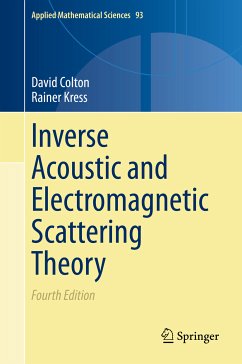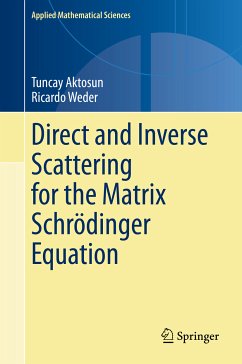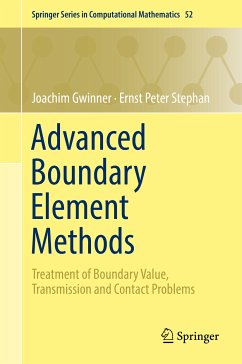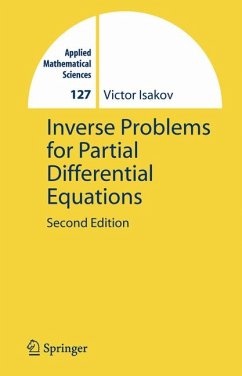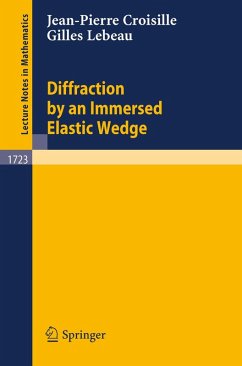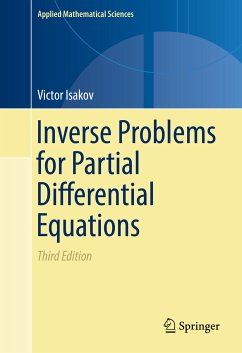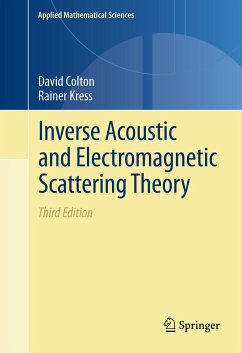
Inverse Acoustic and Electromagnetic Scattering Theory (eBook, PDF)
Versandkostenfrei!
Sofort per Download lieferbar
112,95 €
inkl. MwSt.
Weitere Ausgaben:

PAYBACK Punkte
56 °P sammeln!
The inverse scattering problem is central to many areas of science and technology such as radar and sonar, medical imaging, geophysical exploration and nondestructive testing. This book is devoted to the mathematical and numerical analysis of the inverse scattering problem for acoustic and electromagnetic waves. In this third edition, new sections have been added on the linear sampling and factorization methods for solving the inverse scattering problem as well as expanded treatments of iteration methods and uniqueness theorems for the inverse obstacle problem. These additions have in turn req...
The inverse scattering problem is central to many areas of science and technology such as radar and sonar, medical imaging, geophysical exploration and nondestructive testing. This book is devoted to the mathematical and numerical analysis of the inverse scattering problem for acoustic and electromagnetic waves. In this third edition, new sections have been added on the linear sampling and factorization methods for solving the inverse scattering problem as well as expanded treatments of iteration methods and uniqueness theorems for the inverse obstacle problem. These additions have in turn required an expanded presentation of both transmission eigenvalues and boundary integral equations in Sobolev spaces. As in the previous editions, emphasis has been given to simplicity over generality thus providing the reader with an accessible introduction to the field of inverse scattering theory.
Review of earlier editions:
"Colton and Kress have written a scholarly, state of the art account of their view of direct and inverse scattering. The book is a pleasure to read as a graduate text or to dip into at leisure. It suggests a number of open problems and will be a source of inspiration for many years to come."
SIAM Review, September 1994
"This book should be on the desk of any researcher, any student, any teacher interested in scattering theory."
Mathematical Intelligencer, June 1994
Review of earlier editions:
"Colton and Kress have written a scholarly, state of the art account of their view of direct and inverse scattering. The book is a pleasure to read as a graduate text or to dip into at leisure. It suggests a number of open problems and will be a source of inspiration for many years to come."
SIAM Review, September 1994
"This book should be on the desk of any researcher, any student, any teacher interested in scattering theory."
Mathematical Intelligencer, June 1994
Dieser Download kann aus rechtlichen Gründen nur mit Rechnungsadresse in A, B, BG, CY, CZ, D, DK, EW, E, FIN, F, GR, HR, H, IRL, I, LT, L, LR, M, NL, PL, P, R, S, SLO, SK ausgeliefert werden.




